Inscription: I became an IEEE Life Fellow from January 1, 2019, and now I thought of Mr. Gu Yuxiu, a pioneer in my own research field.
IEEE (Institute of Electrical and Electronics Engineers), formerly known as the American Institute of Electrical Engineers (AIEE) founded in 1884, is currently one of the largest academic societies in the world, with more than 400,000 members from more than 160 countries.
The main branch of IEEE in China is the Chinese Society of Electrical Engineering (CSEE), which was founded in 1934. Mr. Gu Yuxiu, one of the founders, was an IEEE Fellow before I was born.
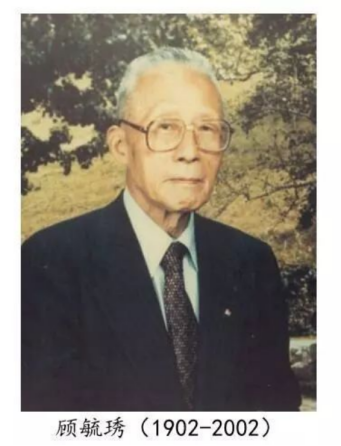
Gu Yuxiu (also Yu Hsiu Ku, December 24, 1902 — September 9, 2002), with courtesy name Yi Qiao and nickname Liangxi Jushi, was born in Wuxi, Jiangsu. He was a multi-talented educator, engineering scientist, poet, dramatist, musician, and Zen scholar. He once said: “All knowledge can be exchanged.” His insight comes from personal practice. In fact, he is the last outstanding generalist of China as he is profound in both Chinese and Western knowledge in both ancient and modern times.
In 1915, 13-year-old Gu Yuxiu studied at Tsinghua School (the predecessor of Tsinghua University) and graduated in 1923. The following year, he was sponsored by the Boxer Indemnity Scholarship Program to study at the Massachusetts Institute of Technology (MIT).

As an educator, after returning to China in 1929, Gu Yuxiu served as professor and Dean of the Department of Electrical Engineering of Zhejiang University (1929-31), Dean of the School of Engineering of Central University (1931-32), the first Dean of the Department of Electrical Engineering, the first President of Radio Research Institute, the first President of the Aviation Research Institute (1932-33) and the Dean of the School of Engineering of Tsinghua University (1933-37), the President of Nanchang Aviation Research Institute (1936), the first Dean of the School of Engineering of Changsha Temporary University (the predecessor of the Southwest Associated University) (1937), Director of the National Government Education Committee and Minister of Political Affairs of the Ministry of Education (1938-44), President of the Central University (1944-45), Director of Shanghai Municipal Education Bureau (1945-47), President of Politics University ( 1947-49). The students he has directly taught include Wu Jianxiong, Qian Weichang, Cao Yu, Zhu Diwen, and Jiang Zemin. In 1950, Gu Yuxiu immigrated to the United States, and initially returned to his alma mater, the Massachusetts Institute of Technology to teach, and later received a tenured professorship at the University of Pennsylvania and retired from the university. During this period, he was successively employed as an honorary professor by more than ten domestic institutions including Tsinghua University, Peking University, Zhejiang University and five Jiaotong universities on both sides of the Taiwan Strait.
As a scientist, Gu Yuxiu is an internationally renowned motor and automation scholar, especially an expert in nonlinear system control theory. During his postgraduate studies at MIT, he published a paper on the general solution method of quartic equations at the age of 23, and at the age of 26, he proposed what later generations called Gu’s variable solution method. Later, he also had inventions such as Gu’s diagram method and Gu’s rule. After returning to China in 1929, he founded the magazine “Electrical Engineering” and was elected president of the Chinese Society for Electrical Engineering and vice president of the Chinese Society of Engineers. He became an IEEE Fellow in the United States and an IEE Fellow in the United Kingdom in 1945, and in 1946 served as a member of the Committee on Theoretical and Applied Mechanics of the National Academy of Sciences and a director of the International Union of Theoretical and Applied Mechanics (IUTAM). He has published monographs and textbooks “Principles of Electrical Engineering” (1936), “Principles of DC Motors” (1937), “Electrical Energy Conversion” (1949), “Circuit Transient Analysis” (1951), “Linear System Analysis and Control” (1952) and “Analysis and Control of Nonlinear Systems” (1958). In 1972, he received a Lame Medal in the international electrical and electronic field and a Gold Medal of the Chinese Society for Electrical Engineering, as well as the IEEE Millennium Jubilee Medal in 1999 and the IEEE Millennium Medal in 2000. He was granted an honorary Doctor of Laws degree (1972) from the University of Pennsylvania (UPenn), an honorary doctorate degree from National Cheng Kung University (2001), and an honorary Doctor of Engineering degree from National Tsing Hua University, Taiwan (2001). UPenn commended him in the award speech: “Gu Yuxiu has shown people his abilities in many fields, with many talents and unparalleled achievements”. In 2000, Song Jian, the founding president of the Chinese Academy of Engineering and chairman of the China Association for Science and Technology, wrote in a letter to Gu Yuxiu: “Your contribution to network and system theory is universally recognized and deserved. Circuits Theory is the source and pioneer of system science, as Fourier-Laplace transformation, stability criteria and so on are all derived from this. You have made groundbreaking contribution to these achievements.”
In the same year, Wu Jianxiong and Chen Xingshen raised funds to publish “Gu Yuxiu’s Scientific Papers”, which is the 12-16th volumes of “Gu Yuxiu’s Complete Works”, containing more than 180 academic papers of him. The preface says “Is there another man except Gu, who knows the mystery of universe and master the rules of control?” In 1959, he was elected as an academician of the Chinese Academy of Sciences in Taiwan.
As a poet, Gu Yuxiu wrote nearly 8,000 poems in his life and published 34 anthologies. His poems include “Five Hundred Ci-poems of Plantain”, “One Thousand Poems of Plantain House”, “Three Hundred Poems of Plantain House Travel”, “Selected Poems of Gu Yuxiu”, “Selected Ci-Poems of Gu Yuxiu”, “Selected Qu-poems of Gu Yuxiu”, “Collection of Gu Yuxiu’s Poetry”, “Collection of Old Ages”, “Land of Woods and Waters”, “Collection of Seaside” “Collection of Overseas”, “Collection of Lotus Songs”, “Collection of Wangling”, “Collection of Woodsman”, “Collection of Tide Sound”, “Qimei Collection”, “Walking Clouds and Flowing Water”, “Liangxi Collection”, “Taihu Collection”, “Pine Wind Collection”, “Changchun Collection”, “Huiquan Collection”, “Plantain House Song of Grass”, “Harmony to Mengchang’s Poems and Others”, “Harmony to Muslim Poems and Others”, “Harmony to Huaihai’s Poems and Others”, “Harmony to Tao Yuanming’s Poems and Others”. He also published 43 novels and essays. In 1976, he was crowned Poet Laureate by the World Congress of Poets and was granted the Pro Mun di Beneficio Medal by the Brazilian Academy of Humanities. In 1995, the “General Catalogue of Treatises on Ci-poem Studies” compiled by the Institute of Chinese Literature and Philosophy of the Academia Sinica listed 26 “contemporary and modern ciologists”, and ranked Gu Yuxiu at the 21st place.
As a dramatist, Gu Yuxiu is one of the initiators of modern Chinese drama. He created 12 plays in his life, most of which were performed at home and abroad. During the May 4th Movement in 1919, he served as the chairman of the drama group of Tsinghua Literary Society and created China’s first modern drama “Yue Fei”. In the 1920s, he advocated China’s “National Opera Movement” while studying in the United States, and had many creations: in 1922, he published the modern drama script “Gu Hong (Lonely Swan Goose)” in the “Fiction Monthly”, and in 1923, he wrote and directed “John Zhang” and performed it in Peiping, China. In 1924, he wrote and directed the “National Hand” in the United States, and in 1925, he wrote and directed the drama “Pipa”, which was joined by Wen Yiduo, Liang Shiqiu and Bing Xin, et al and performed in Boston, the United States. In addition, he also wrote and directed plays such as “National War” (1925), “Madame White Snake” (1930), and “Jing Ke” (1932). In 1938, his Anti-Japanese War drama “Beacon Fire in the Ancient City” was performed in Chongqing, and then his historical drama “Yue Fei” was also performed in Chongqing. In the same year, he also published historical plays such as “Xiang Yu”, “Jing Ke”, “Su Wu” and “Xi Shi”, as well as the famous play “Zhilan and Moli”. In 1945, he and the dramatist Li Jianwu jointly founded the Shanghai Theatre School (Shanghai Theatre Academy now).
As a musician, Gu Yuxiu was the first president of the National Conservatory of Music (the predecessor of the Central Conservatory of Music) and the first director of the National Symphony Orchestra (1940). He is profound in classical music and well versed in ancient Chinese music language. He also translated Jiang Kui’s self-style scores into staves for performance. In 1941, he published the article “Huang Zhong Ding Yin Ji” in “Guo Feng”, which was subsequently recognized by the academic community as the standard of Chinese Huang Zhong. He was also the first person to translate Beethoven’s Ninth Symphony, “Ode to Joy”, into Chinese sheet music. In 1943, he became the director of the National Ceremony Hall. After Gu Yuxiu immigrated to the United States in 1950, he did a lot of arranging work of poetry and song scores: he first organized “Twenty-five Tunes of Tang and Song Dynasties”, including 15 songs and 10 lyrics, all accompanied by English translations and published by Taiwan Commercial Press. in 1955, he sorted out the musical scores of ancient poems engraved in the Ming Dynasty: in 1968, he published “Forty-five Tunes of Ci-poems and Qu-pomes”, and then published “Ten Songs of the Woodcutter” in Taiwan, which was included in the “Chinese Encyclopedia”. He published “Five Hundred Poems of Woodcutter’s House” in 1972 and “One Thousand Poems of Woodcuter’s House” in 1973. In 1991, Beijing Central Conservatory of Music held a concert of his works to celebrate Gu Yuxiu’s 90th birthday. In 2001, the Central Conservatory of Music and the European and American Alumni Association once again held a concert of Gu Yuxiu’s works in the Great Hall of the People, which Chairman Jiang Zemin and Premier Zhu Rongji attended.
As a Zen scholar, Gu Yuxiu has profound attainments in religious studies, and has made many achievements and far-reaching influences in Buddhism, especially in the history of Zen Buddhism. He has published monographs such as “The Master of Zen” (1966) and “The Story of the Master of Zen in Japan” (1977). In 1979, Gu Yuxiu published the masterpiece “The History of Zen” in the United States, the Chinese translation of which was published by Shanghai Ancient Books Publishing House in 2009.
Gu Yuxiu is indeed a leader in the literary world. All in all, he wrote nearly 8,000 poems, ci-poems and qu-poems in his life, and published 82 novels, plays, poems, music and religious works. In 1961, Taiwan Commercial Press published the Complete Works of Gu Yiqiao, a total of 12 volumes. In 2000, the “Complete Works of Gu Yuxiu” was edited by the Chinese Academy of Social Sciences and published by Liaoning Education Press, with a total of 16 volumes, in which the preface wrote: “Mr Gu Yuxiu is profound in both Chinese and Western knowledge, both science and arts, and his is the only man good at both humanities and mathematics since the contemporary times of China.
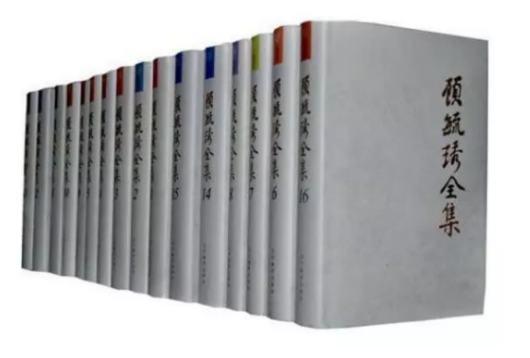
Gu Yuxiu is a non-partisan patriot. After the “September 18th Incident” in 1931, he immediately published the article “Anti-Japanese and National Salvation Measures” in “Daily Current Affairs News” and “Central Daily”, urging the Chinese people to rise up against Japan. In January of the following year, the Battle of Songhu broke out, he led the students of Central University to Nanjing Railway Station to send the soldiers of the 19th Route Army to Shanghai to fight the Japanese invaders. He then created the historical drama “Yue Fei” with the theme of serving the country with loyalty, and together with his old work “Jing Ke”, it was printed and distributed as a single book. After the “July 7 Lugou Bridge Incident” in 1937, he issued a joint statement with 12 well-known figures in the educational circles in Beijing, including Jiang Menglin, Hu Shi, Mei Yiqi and Zhang Boling, asking the government to “use the strength of the whole country to maintain the integrity of the country’s territory and administration.” During the Anti-Japanese War, he assisted in the development of gas masks and sent them to the battlefield, secretly transferred precious books and experimental instruments from Tsinghua University to Hankou, provided radio propaganda equipment for the Hankou Radio Station, and participated in the rescue of the arrested professors Feng Youlan and Ye Qisun. After the overall victory of the Anti-Japanese War in 1945, Gu Yuxiu was appointed as the lieutenant general of the Army General Headquarters, attended the ceremony to accept the Japanese surrenders in Nanjing on September 9, 1945, and was granted the Anti-Japanese Victory medal “Jing Star” by the National Government of the Republic of China.
Since Gu Yuxiu immigrated to the United States in 1950, he has often been fond of his homeland. Since 1973, he has returned to China for eight visits and lectures.
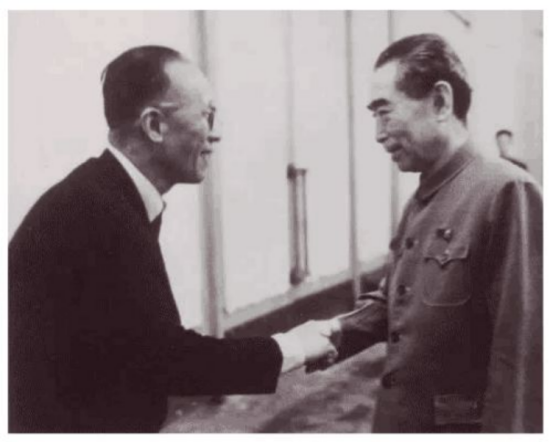
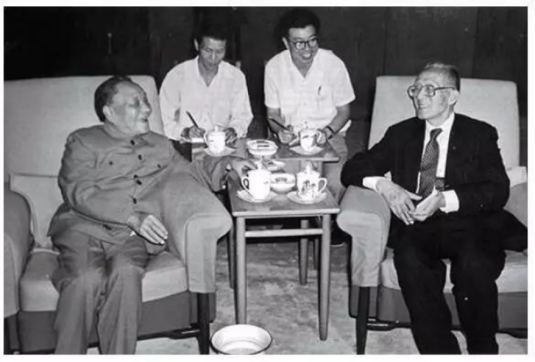
On September 9, 2002, Gu Yuxiu died of illness at his home in Oklahoma City, USA, at the age of 100. Mr. Gu summed up his life with “scholar, professor, poet, breezing wind, bright moon and brave pine tree”. As a man of the Chinese encyclopedic generation, he has created a glorious image of a great Chinese intellectual to the world with his outstanding talent, independent personality and free spirit.
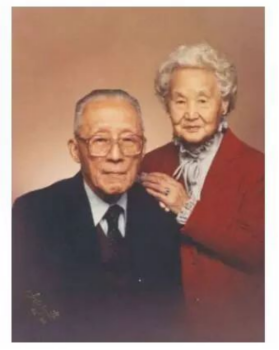
Gu Yuxiu’s wife Wang Wanjing (1901-2006) was a painter who died at the age of 105. The couple raised eight children together. In April 2006, the ashes of the Gu couple were taken back to their hometown Wuxi and buried in the Lake View Cemetery by the Taihu Lake. On December 13, 2004, the Gu Yuxiu Memorial Hall was inaugurated at No. 3 Xueqian Street, Wuxi City. Chairman Jiang Zemin presented the inscription by himself. In 2012, another bronze statue of Gu Yuxiu was completed at the China Modern Literature Museum in Beijing, which is admired by future generations.
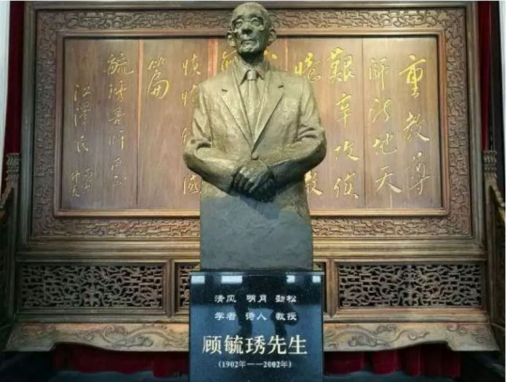
Gu Yuxiu himself wrote an inscription on the statue of Gu Yuxiu, which was set up in 2001 to celebrate the 100th anniversary of the founding of Nanjing University and the 100th birthday of Gu Yuxiu in the following year: “Scholar, Professor, Poet, Breezing wind, Bright moon and Brave Pine Tree”. The background is engraved with a poem written by then-President Jiang Zemin, who had studied calculus with Gu Yuxiu: “A respectable teacher attaching unprecedented importance to education, a model of hard working for years; an outstanding pioneer in differential operation and a great contributor to China.”
Appendix
Message of condolence from President Jiang Zemin
I am deeply saddened to hear of Mr. Gu’s untimely passing, and I would like to express my deepest condolence to you and your family. Mr. Gu is knowledgeable in both the past and the present and both Chinese and Western cultures, and he taught people as a model teacher. He has been eager to learn all his life and concerned about the reunification of the motherland. Gu’s noble spirit will always inspire future generations. Mr. Gu Yuxiu is immortal.
Jiang Zemin, President of the People’s Republic of China, Beijing, September 10, 2002
Message of condolence from Premier Zhu Rongji
Dear Mrs. Wang: I am deeply saddened to learn of the unfortunate passing of Mr. Gu. I would like to express my deepest condolence to you and to your family through you. Mr. Gu has been rigorous in his studies throughout his life, and is knowledgeable in both liberal arts and sciences. He is a model for others. Mr. Gu Yuxiu cares about the motherland and the Chinese people, and he will always live in our hearts.
Zhu Rongji, Premier of the State Council of the People’s Republic of China, Beijing, September 10, 2002
Reprinted from the WeChat public account Fun Math, with the authorization from the author.
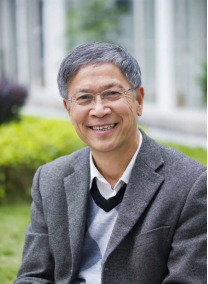
Author: Chen Guanrong
Chair Professor, City University of Hong Kong
Mainly engaged in nonlinear dynamical systems and complex networks
Life Fellow of IEEE, Member of Academy of Europe, Fellow of the World Academy of Sciences.
This article is reproduced from thepaper.cn.

















 Alumni
Alumni